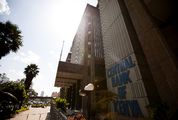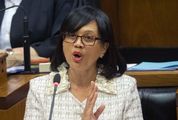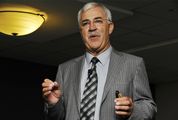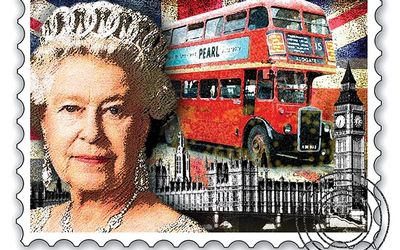FORMER British prime minister Tony Blair offered a mini mea culpa at the weekend for his decision to send troops to Iraq.
His decision to follow George Bush into war in Iraq, based on false "intelligence" that Saddam Hussein had weapons of mass destruction, has had some unintended consequences, chief among them that, after the bombs fell, the scorched earth that was Iraq — and to some extent Afghanistan — became fertile ground for extremist groups such as al-Qaeda and the Islamic State.
Blair told CNN: "I apologise for the fact that the intelligence we received was wrong. I also apologise, by the way, for some of the mistakes in planning and, certainly, our mistake in our understanding of what would happen once you removed the regime."
But he did not apologise for removing Saddam, just the lack of a plan to rebuild Iraq and restore order after his removal. And he admitted there were "elements of truth" in the view that this had helped to further the aims of extremist groups.
Why now? Well, Blair faces the release soon of John Chilcot’s report on the war, of which he has already received a copy. So it’s a pre-emptive strike to take some of the sting out of the findings. The release of the Chilcot report will have ramifications not only for the former prime minister, but the current one too. David Cameron is mulling further engagement in Syria when that crisis, and the legacy of the bombing campaign in Libya, washes up in Europe in the form of a huge refugee crisis.
As with Iraq, Muammar Gaddafi is long gone, but Libya is a hair away from being a failed state. Some would argue it already is. This has added to growing calls for urgent reform of multilateral institutions such as the United Nations (UN), its security council and agencies, as well as the International Criminal Court.
Blair’s mea culpa comes just a week after International Relations and Co-operation Minister Maite Nkoana-Mashabane, visiting London for the UK-SA bilateral forum, said that, despite an ever-changing world, the UN is "one institution that stubbornly remains the same".
Nkoana-Mashabane noted that the UK had now given its backing for a permanent African presence on the security council.
She said: "It is because of the lack of reforms on the security council that you now have two security council members (the US and Russia) not seeing eye to eye on how to resolve the problem in Syria. They all agree on one thing: they need to deal with (the Islamic State) now. But the how, that’s what they’re not agreeing on. One wants (the Islamic State) removed, but also to bring regime change. As a result, more than 7-million people are on the move, to go where? Hell knows."
It seems SA will be pushing for a political solution to Syria, perhaps with some kind of interim power-sharing deal and road map to elections rather than "regime change that comes with the story of ‘step aside’". She said: "Political problems have never been solved militarily, that’s not sustainable." There had to be a post-conflict Marshall Plan "when the real challenges come".
Nkoana-Mashabane noted: "When we (SA) signed (UN Security Council) Resolution 1973, it was about the responsibility to protect civilians. They (US and UK) then went on a bombing campaign and when they were done with the bombardments, they left that country (Libya) almost stateless. And now they’re complaining it has become a (breeding ground) for Isis, for Boko Haram, for whoever. Who rendered that country ungovernable? They should take the responsibility."
The release of the Chilcot report will, perhaps, force the British government to do just that.
• Meintjies is Times Media’s foreign correspondent and bureau chief in London.





















Change: -0.47%
Change: -0.61%
Change: 0.53%
Change: -0.42%
Change: -2.12%
Data supplied by Profile Data
Change: -0.46%
Change: 0.12%
Change: -0.47%
Change: 0.00%
Change: 0.17%
Data supplied by Profile Data
Change: -1.80%
Change: -1.55%
Change: -1.24%
Change: -1.74%
Change: -1.69%
Data supplied by Profile Data
Change: 0.71%
Change: 1.87%
Change: 1.12%
Change: 0.89%
Change: 1.15%
Data supplied by Profile Data